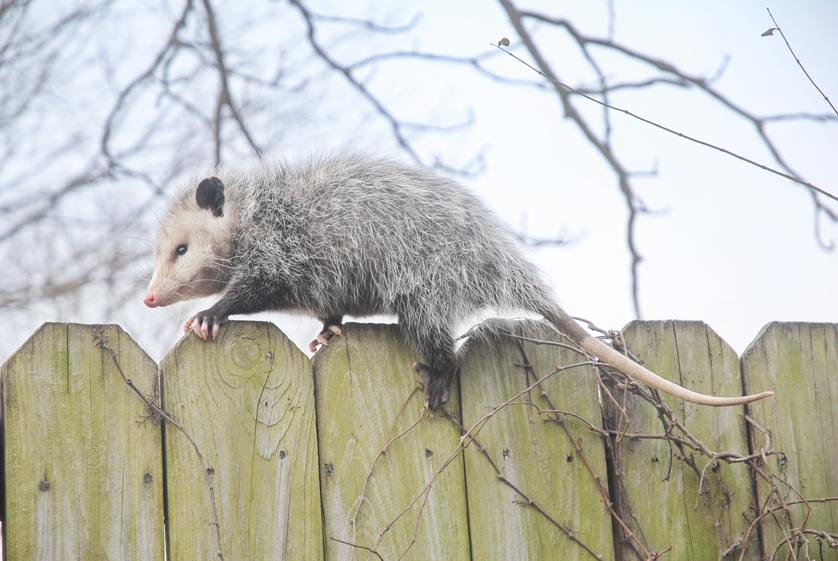3 Dangerous Diseases Spread by Opossums

Opossums are fascinating creatures with unique adaptations. They play a vital role in ecosystems as scavengers, helping to control pest populations, like the Lyme disease-carrying tick–eating up to 95% of the tick population that crosses their path.
Although they prefer living in natural habitats, they may find their way into your home, causing more harm than good, including property damage, spreading dangerous diseases, and attracting other pests.
Keep reading to discover three diseases spread by opossums and how Critter Guard can help you keep these marsupials at bay.
Dangerous Diseases That Opossums Can Spread
While opossums are considered harmless and docile creatures, they can carry and transmit dangerous diseases, such as:
1. Coccidiosis
Coccidia, a microscopic parasite found in opossum feces, spreads the disease known as coccidiosis. While opossums are immune to the disease, they are carriers and spread it to other animals, including pets, especially dogs and humans.
The symptoms of coccidiosis vary, but common signs include watery or bloody diarrhea, dehydration, weight loss, and a general decline in health. If left untreated, it can result in complications or death, especially in young animals or those with weakened immune systems.
2. Toxoplasmosis
Toxoplasmosis is a parasitic infection that opossums can carry and transmit through their feces. Contact with healthy individuals rarely causes notable symptoms, but it poses a severe risk for pregnant women and immunocompromised persons.
Pets, especially cats, can become infected after ingesting an infected opossum or feces. It can lead to flu-like symptoms, and in severe cases, it may cause damage to the brain and eyes.
3. Leptospirosis
Leptospirosis is a bacterial infection spread through contact with opossum urine or contaminated water. Both pets and humans can contract this disease through contact with infected fluids or ingesting contaminated food or water.
Symptoms include fever, muscle pain, and severe liver and kidney complications. Dogs are also susceptible to leptospirosis, with symptoms including fever, lethargy, vomiting, diarrhea, and decreased appetite.
Critter Guard's Wildlife Control Solutions
At Critter Guard, we understand the havoc opossums may cause in your home. Our Line Guard and Pole Guard products are designed to help keep these critters away from your residence and hinder the spread of these diseases to you and your family. To learn more about our products and how to keep opossums away from your environment, contact us today!
- Choosing a selection results in a full page refresh.


